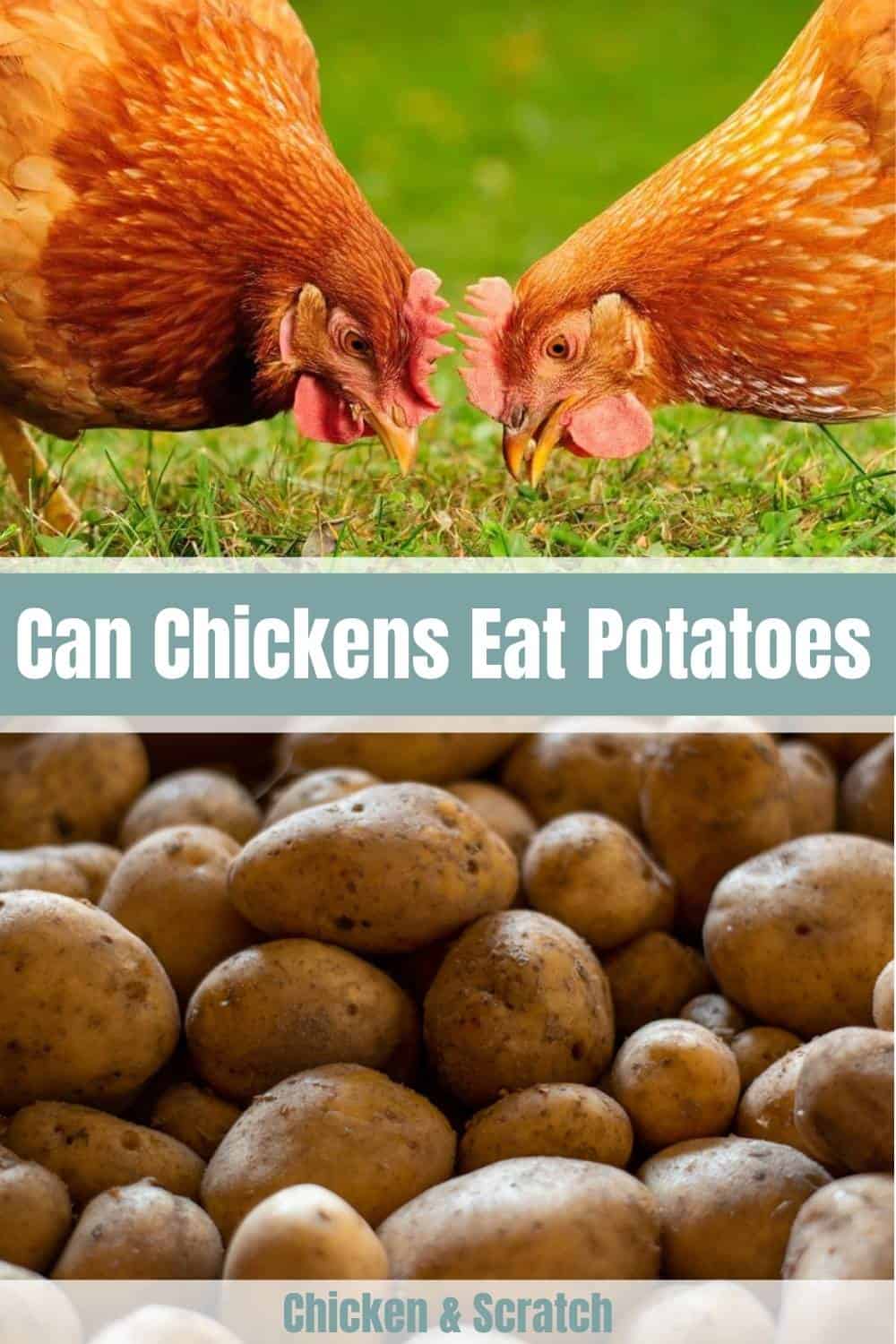
Can Chickens Eat Potatoes? (Nutrition, Advantage, Feeding Tips)
These can be cut into smaller pieces for your chickens; they will enjoy them. To avoid wasting your time and energy preparing something your chickens won't eat, test your chickens with a few baked potato peels first. Conclusion Chickens can consume potato peels if they are in good condition and properly baked.
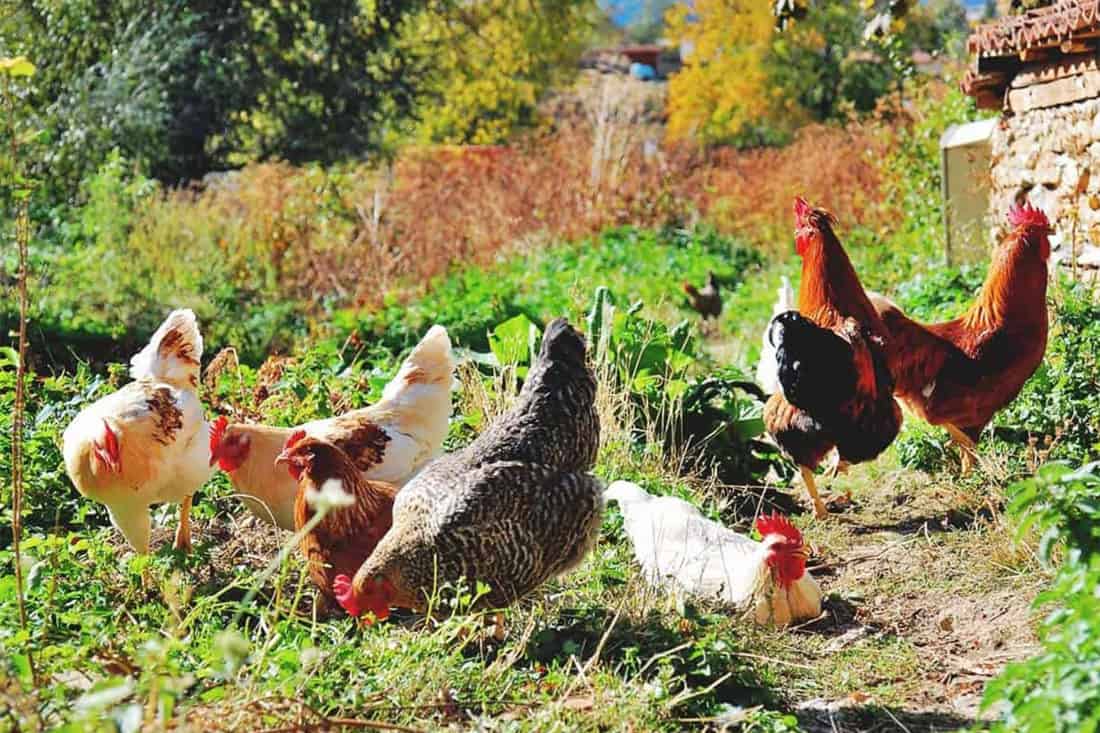
Can Chickens Eat Potato Peels? (Nutrition, Pros & Cons)
Baby chickens can eat potato peels, but it's best to wait until they are about 3 weeks old. Under 3 weeks old, their digestive system has not developed enough to digest the peels correctly. Instead, the chicks should be fed starter feed, when they hatch and until they are 8 weeks old. The starter feed is formulated with the right amount of.

Can Chickens Eat Potato Peels? (Nutrition, Pros & Cons)
Conclusion. Chickens can eat potato peels as long as they don't contain any green pigment. The green pigment contains a chemical that's toxic to chickens. Both red and white potatoes can contain this chemical, but sweet potatoes do not. While most chickens love potato peels, there is a risk when feeding them. Many other table scraps are.
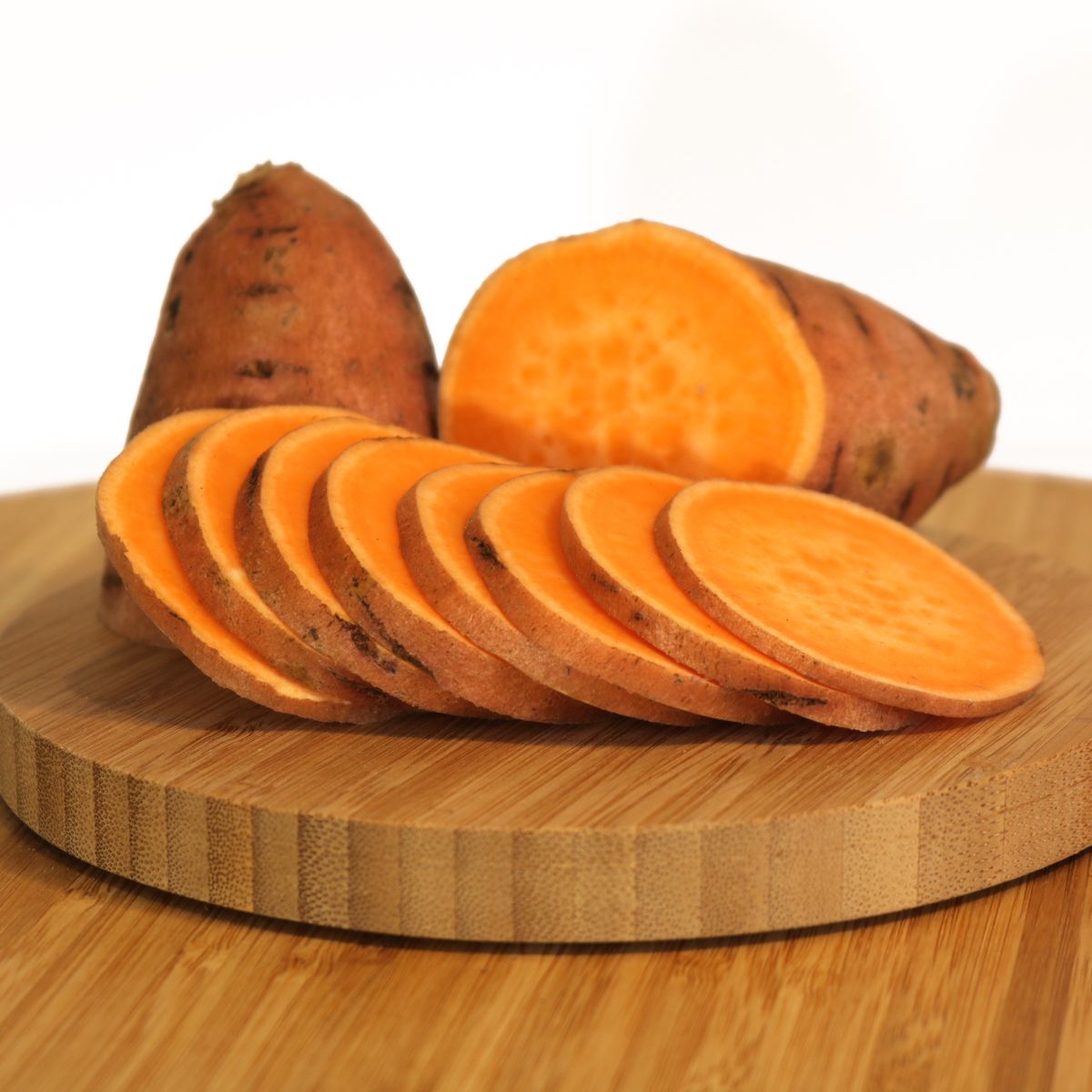
Are Sweet Potato Peelings Poisonous To A Dog
If your chickens show initial signs of discomfort with potato peels, you can try reducing the quantity or frequency of feeding them. Sometimes, a gradual increase in potato peel consumption can help chickens adjust to the new addition to their diet. 5. Keeping Records:

Can Chickens Eat Potato Peel? Farm Days Down Under
Yes, chickens can eat potato peels as long as the potato peels are fresh and haven't turned green. The green hue is an indication of the presence of the toxin solanine. This neurotoxin persists alongside chlorophyll and manifests as a green patch on the potato skin. Solanine can cause gastric irritation, paralysis, and even death in chickens.
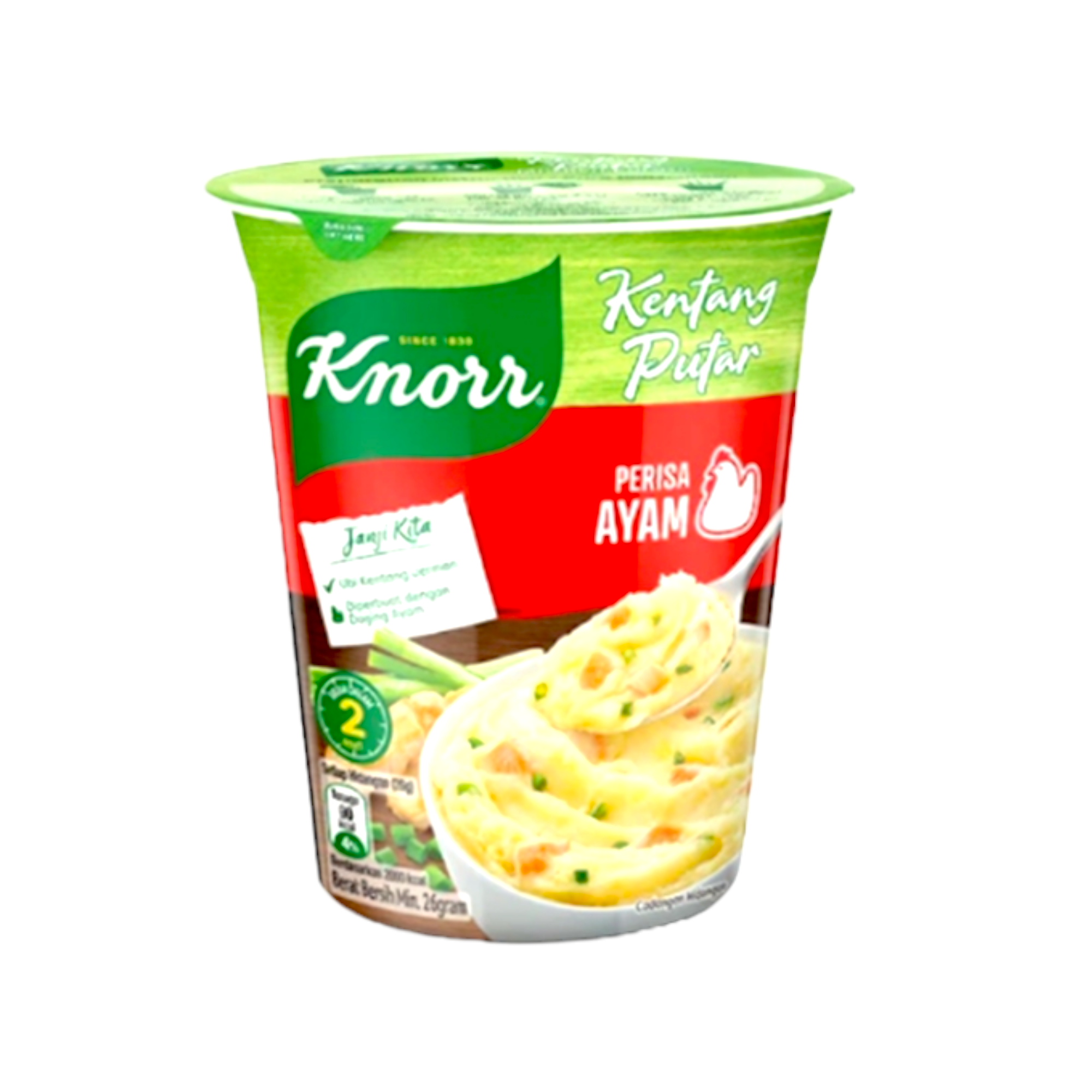
Knorr Cup Mashed Potato Chicken Flavour 26g Shopifull
The high fiber content of potato peels can support a healthy gut in chickens and help with digestion. Potato peels can be fed to chickens in proportion to encourage regularity and prevent digestive problems. 4. Vitamins. Chickens' immune systems and general health can benefit from the necessary vitamins included in potato peels.

In this article, we go over if you should feed your pet rabbit potato
No, chickens can not eat acorns as they are toxic. Acorns, oak leaves, buds and twigs should all be avoided. Young leaves and freshly fallen acorns have the most tannins and are therefore the most toxic to chickens. Tannins (tannic acid) can cause damage to a chicken's gastrointestinal tract and kidneys. Source.

Can chickens eat carrots?
Nutritional Value of Potato Peels. Potato peels are a source of carbohydrates, fiber, and some vitamins. They should not replace the primary layer feed, but can contribute to a varied diet. potatoes can chickens eat potato. Chickens require a balanced intake of protein, calcium, and other nutrients for optimal health and egg production.

What Eats Sweet Potato Leaves? [] Foodie Fitness Food and Fitness
Chickens can eat potato peels, as long as they do not have any green on them caused by exposure to the sun or because they're too raw. This is because green potatoes contain solanine. A toxin that is potentially very harmful to chickens, and to us too. It's worth noting that red and white potatoes both follow this rule.
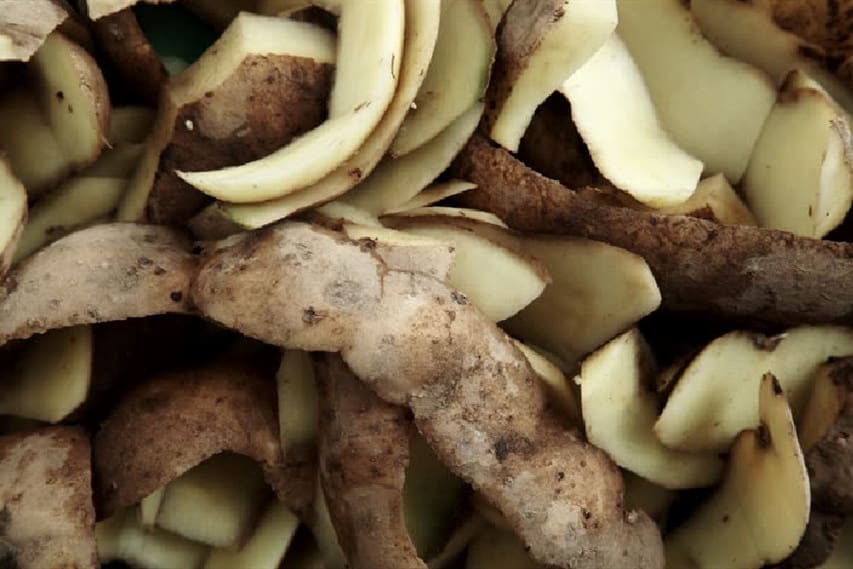
Can Chickens Eat Potato Peels? (Nutrition, Pros & Cons)
When done right, feeding potato peels to chickens can be a healthy treat. Preparation is key to ensuring that the potato peels are safe and easily digestible for the chickens. Here are some guidelines on how to properly prepare and feed potato peels to chickens. 1. Cleaning and Inspection. Start by making sure the potato peels are clean.

Can ducks eat potato peelings? Duck Breeding
However, sweet potatoes are actually from the plant family morning glories. So although normal raw potatoes can be toxic to chickens, sweet potatoes and sweet potato peels are completely safe and healthy for your chickens to eat! Sweet potato peels are rich in carbohydrates, vitamins, and minerals, and can be fed to your chickens in a healthy.
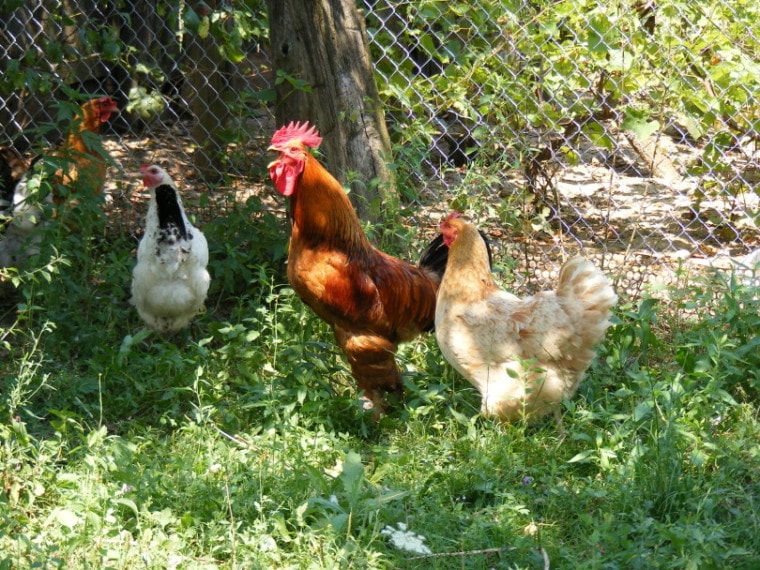
Can Chickens Eat Potato Peels? Every thing You Must Know! Local San
No, chickens should not eat raw potato peelings, as it is not safe for them. Raw potatoes and their peels contain a naturally occurring substance called solanine, which can be toxic to chickens when ingested in large quantities. Feeding chickens potato peels might result in gastrointestinal distress, reduced egg production, and even death, so.

What can chickens eat? From Cucumbers to Grapes ChickenGuard
Feeding potato peels alone may result in an imbalanced diet and health issues for chickens. Potato peels should not be the sole component of a chicken's diet, a varied diet is crucial. Green or sprouted potatoes can contain the toxic substance solanine, harmful to chickens.
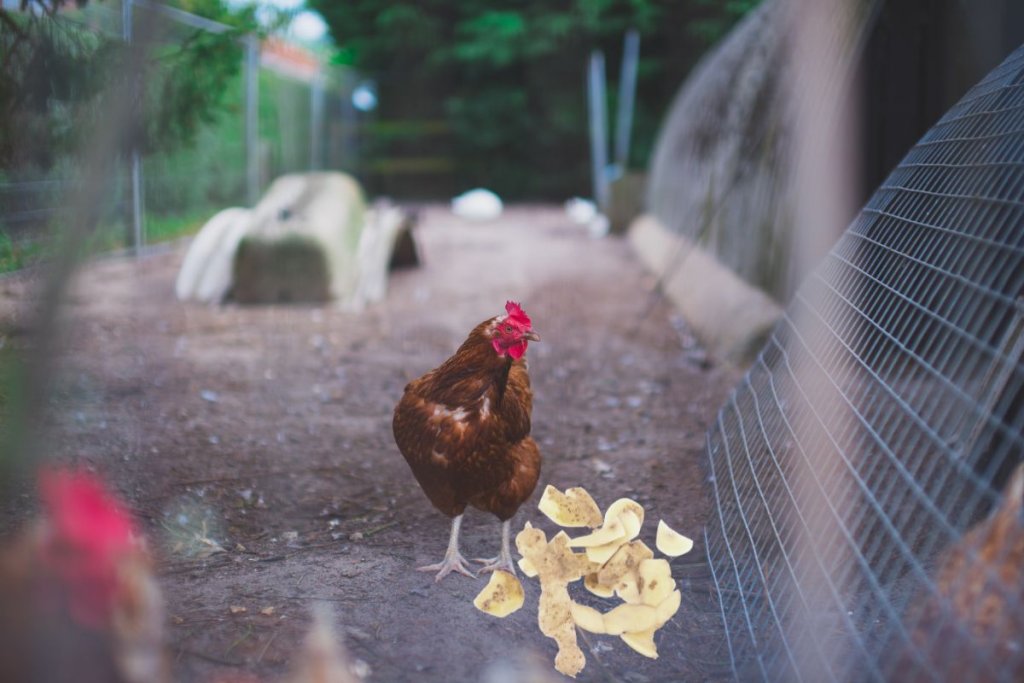
Can Chickens Eat Potato Skins?
The answer is yes, with some important considerations. Potato peels can be part of a chicken's diet, but it's essential to be aware of the potential benefits and risks. Potato peels are a source of carbohydrates and fiber. They can provide chickens with some energy and dietary roughage. However, it's crucial to remember that potato peels.

Can Chickens eat Apple Peelings? Four Leaf Farm
While chickens can't eat raw potato peels, you can feed them cooked ones. But even if they are deemed safe, they aren't the best treats. There are so many other kitchen scraps you can give your hens that are better for them. Below is a Pinterest friendly photo…. so you can pin it to your Backyard Chicken Board!!
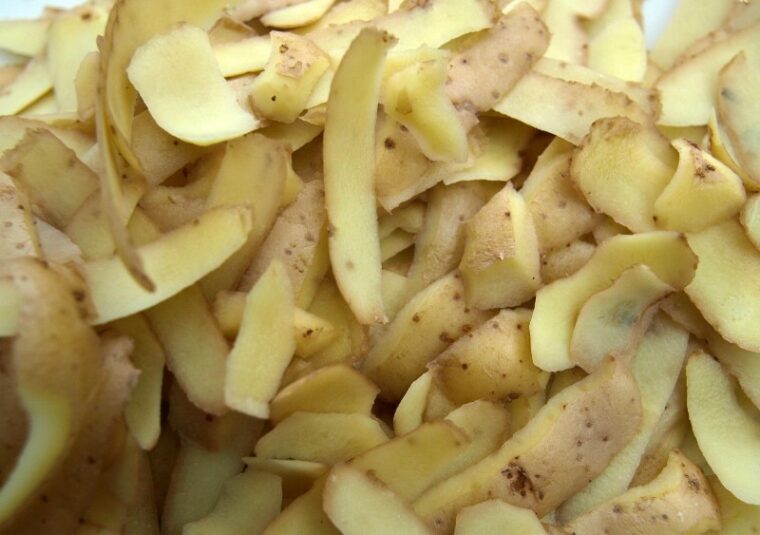
Can Chickens Eat Potato Peels? Everything You Need to Know! Pet Arenas
Chickens should not eat green potatoes or sprouted raw potato peelings due to the presence of solanine, a toxin that can be harmful to them. While yellow or white potatoes that aren't green could technically be eaten by chickens, it is generally safer to avoid feeding raw potatoes altogether to prevent any risk of solanine poisoning.